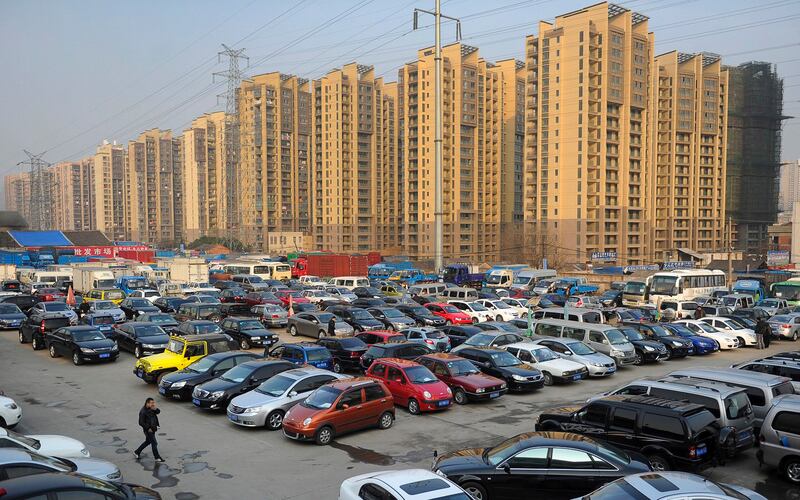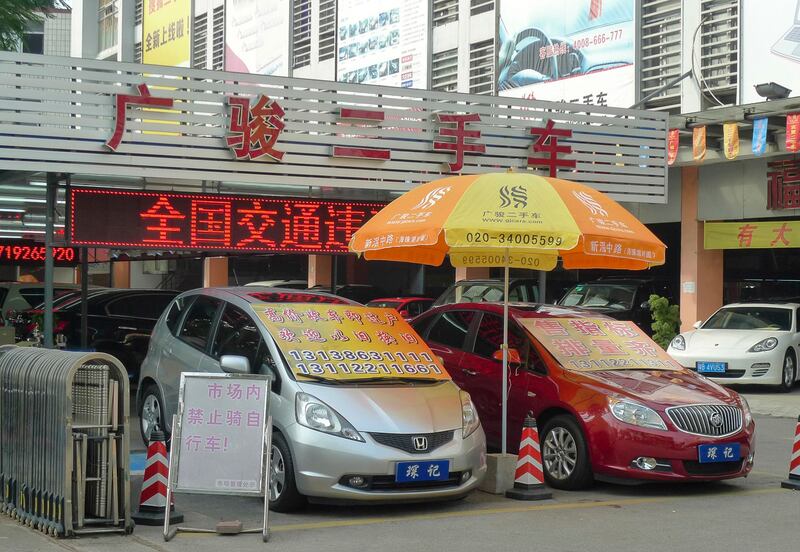A recent surge in demand for used cars in North Korea has triggered an increase in car smuggling from China, with dozens of vehicles crossing a shallow section of the Yalu River every day, several sources told Radio Free Asia.
The used vehicles include a variety of cars that are often dismantled once they reach North Korea so that their parts can be used for the repair and maintenance of other vehicles, the sources said.
Trucks are also among the recent imports, raising the possibility that they’re needed on development projects emphasized by North Korean leader Kim Jong Un.
Cars were regularly smuggled into North Korea before 2020, even though U.N. Security Council Resolution 2397 prohibits the export of passenger vehicles into the country.
But during the COVID-19 pandemic, Beijing and Pyongyang closed down the border and suspended all trade, which also stopped the smuggling. That led to pent-up demand for used vehicles and automotive parts, according to Choi Jangho of the South Korea-based Korea Institute for International Economic Policy.

Because of the U.N. sanctions, buyers of the used cars can’t bring them through the Changbai-Hyesan Bridge into North Korea’s Yanggang province through official means, a North Korean source told RFA, citing discussions with local traders.
“But if you go upward, you will reach the upper reaches of the Yalu River,” he said. “There is not much water these days, so even when a car fords over the river, only half of the wheels are submerged.”
Satellite images
RFA looked at locations suspected of being used for car smuggling through satellite images, and got some help interpreting them from experts.
About 4.5 kilometers (2.8 miles) upriver from the Changbai-Hyesan Bridge, the Yalu River narrows to about 35 meters (yards) and the river’s depth becomes shallow with a hard-enough bottom that would make it an ideal spot for vehicles to pass.
In one satellite image, exposed stones from the river bed could be seen, said Bruce Songhak Chung, a researcher at the South Korea-based Korean Institute for Security and Strategy.
“The whitewater current shows that the river is shallow enough for people to easily cross, and that there are more stones and pebbles than sand,” he told RFA.
There are several other sections of the Yalu River near North Korea’s Yanggang province where smugglers could easily bring in used cars, according to Choi Jangho.
“The Yalu River there is shallow, so you can just pass by,” he said. “As many [cars] as you would like.”

Several sources said most of the cars are purchased in Changbai Korean Autonomous County in China’s Jilin province, just across the border from Yanggang province.
But some are purchased in the city of Dandong, which lies across from the North Korean city of Sinuiju near where the Yalu River meets the Yellow Sea.
Turning a blind-eye
In early April, a North Korean living in China told RFA that he reached out to a Chinese trader in Dandong to ask about buying used cars.
The North Korean expatriate said he asked the trader to properly inspect the used cars to see if they were in good condition, and also suggested some prices.
“Are there a lot of used cars going from China to North Korea these days?” the trader asked.
“Yes,” the expatriate responded.
Since there is no credit used in the used car transactions, the trader told the expatriate he always waits until he has received payment from his North Korean buyers before sending the used cars across the border.
The North Korean source who knew about the crossings into Yanggang province said that Chinese customs officials are aware of the used car smuggling but turn a blind eye in exchange for bribes.
Chinese officials must also pretend not to know about the smuggling to avoid being implicated in the violation of U.N. sanctions against North Korea.
U.N. Security Council Resolution 2397, passed in 2017, is meant to deprive Pyongyang of cash and resources that could be funneled into its nuclear and missile programs.
Translated by Claire S. Lee. Edited by Matt Reed and Malcolm Foster.

